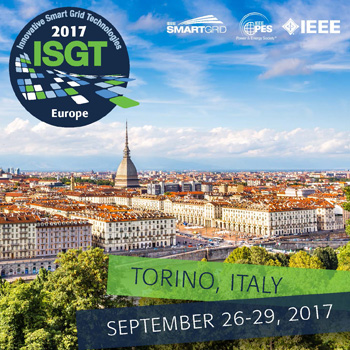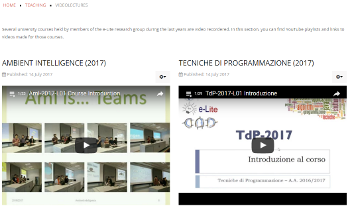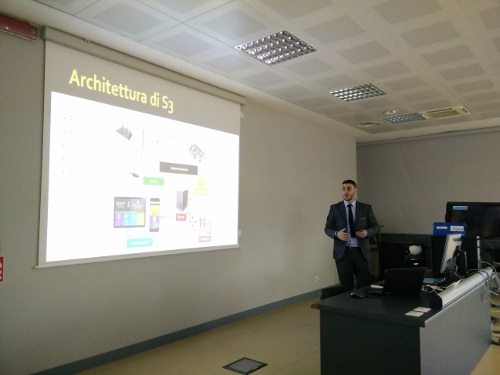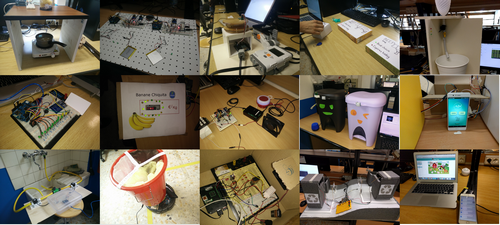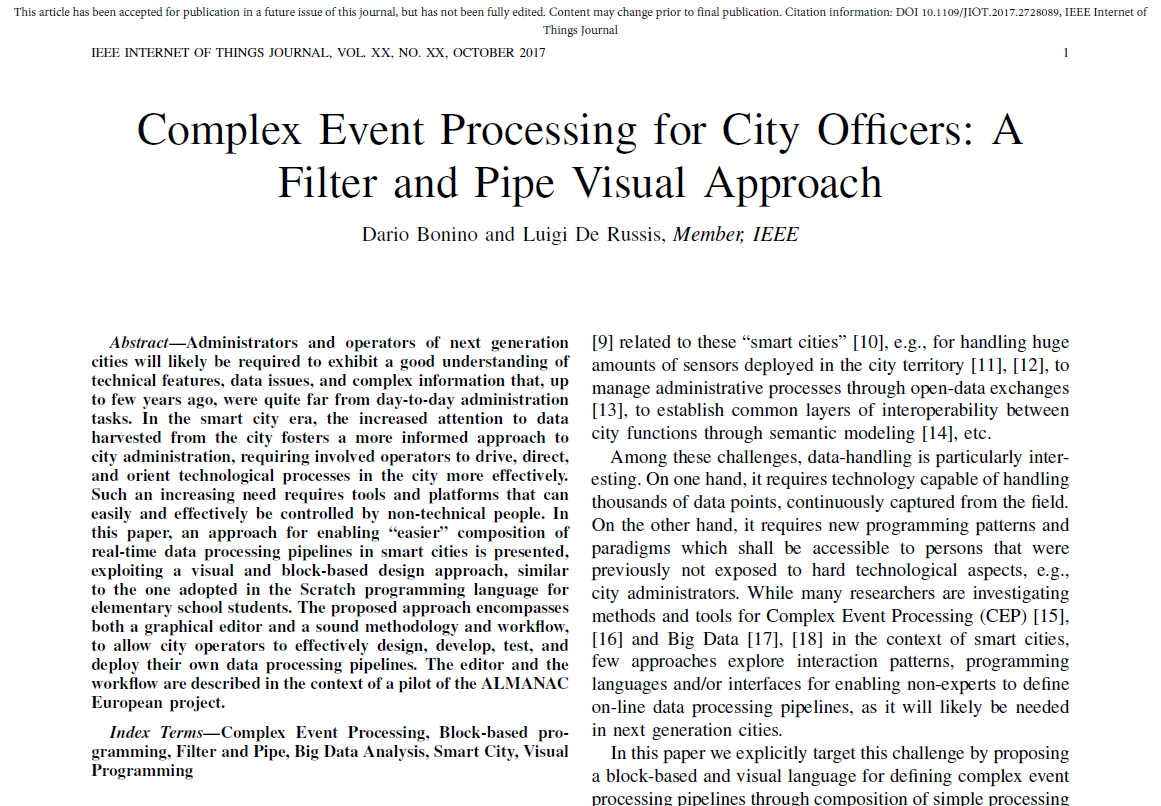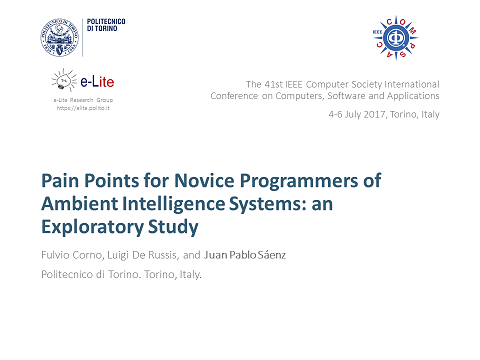- Details
The e-Lite Research Group will participate in the 7th IEEE International Conference on Innovative Smart Grid Technologies (ISGT Europe 2017), at the Politecnico di Torino, in Turin, Italy, on September 26-29, 2017.
Juan Pablo Sáenz will attend the conference and present the paper entitled On the Design of an Energy and User Aware Study Room in the session named ICT for Smart Grids. The paper presentation is scheduled on Thursday 28 September, from 16:30 pm to 18:30 pm, in Room 5.
The paper identifies the requirements and proposes the design of a two-way aware study room in which users are also aware of the building issues and are enabled to provide feedback by reporting them and requesting assistance. The aim of such study room is to decrease energy consumption, increase the availability of the physical resources, and raise the comfort level of the users. The elicitation of the requirements and the design of the study room were defined based on the results of a survey conducted among 61 university students that use a specific study room located at the Politecnico di Torino campus.
- Details
Several years ago, the members of the e-Lite research group started to video-record their lectures and seminars. Video recording lectures is both useful for students and for teachers, and the Politecnico di Torino officially records various courses, in its bachelor and master degrees. The e-Lite group holds some of these courses, and records almost all the other courses its members held. Up to now, videolectures were available on official channels (e.g., on the Politecnico website) and as dedicated YouTube playlists (e.g., the "Tecniche di Programmazione" playlist).
To ease the discovery of such videolectures and to have a unique place for accessing them, we added the Videolecture category to our website. The category contains all the 2017 courses held by e-Lite group members that are video recorded, either autonomously or officially (i.e., with professional equipment). We plan to update that page in the forthcoming months and years with newer contents.
- Details
Sustainability of a university campus, and in particular energetic sustainability, relies on the efficiency and smartness of the energy systems, as well as the behavior of campus users (student, faculty, staff). Much literature is available about the solutions for creating smart buildings, and improving energy efficiency and co-generation. Likewise, social studies of behavior in smart homes and cities are also available, but the two aspects have seldom been considered jointly.
The thesis of Roberto Marturano, discussed on July 2017, explores this topic and develops an integrated system for a study room in our university. The Smart Study Room (S3) system is able to gather information from various building-related sensors and from crowd sensors, and apply data fusion to construct a comprehensive vision of what happens in a study room. Such knowledge can be used to provide, with a Living Lab methodology, selected information back to the system users, in order to (a) improve their awareness and (b) stimulate behavioral changes.
The S3 system has been evaluated through a prototype implementation and the installation in some actual space within the campus, namely a laboratory (before) and the meeting room in which Roberto discussed his thesis. In this way, a complete - yet preliminary - evaluation of the system and of the conveied information has been conducted, with appreciable results.
- Details
The summer exam session has been very successful for Ambient Intelligence students. During the two exam dates (28/06 and 19/07), all the projects were completed, and the running prototypes have been demonstrated and discussed in the LADISPE lab.
The teachers would like to congratulate with the students: this is the first time that all the started projects reached a successful end (in previous years, some projects were sadly abandoned). And it's also the first time that all project passed during the summer season (in previous years, some project was presented in the autumn exam season). So... double achievement, double congratulations.
The next step will be the public presentation of the projects at the Ambient Intelligence Student Showcase 2017, that will take place in October. Stay tuned!
- Details
The IEEE Internet of Things journal recently accepted and published an early access version of the paper entitled "Complex Event Processing for City Officers: A Filter and Pipe Visual Approach". The paper has been written by Dario Bonino (a former e-Lite group member, now at ISMB) and Luigi De Russis.
The manuscript tackles a problem that will become much more frequent in smart city scenarios: city officiers, without a technical background, will be required to exhibit a good understanding of technical features, data issues, and complex information handling that, up to few years ago, were quite far from their day-to-day administration tasks. In a smart city, such officiers will be required to effectively drive, direct, and orient various technological processes in the city, to understand and gather information about various aspects of the city itself. In the paper, an approach for enabling an easier composition of real-time data processing pipelines in smart cities is presented. The approach encompasses both a graphical editor and a sound methodology and workflow, to allow city operators to effectively design, develop, test, and deploy their own data processing pipelines. As a working example, the editor and the proposed workflow are described in the context of a pilot of an European project, held in the municipality of Turin.
- Details
On July 6, 2017, Juan Pablo Sáenz presented the paper Pain Points for Novice Programmers of Ambient Intelligence Systems: an Exploratory Study at the audience of the Symposium on Software Engineering Technologies & Applications (SETA) in the COMPSAC 2017 conference, held in Torino, Italy.


